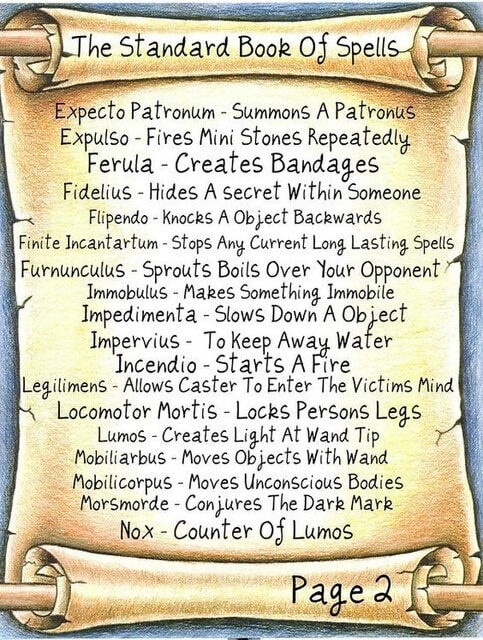私の英語はほぼ独学である。
Most of my English is self-taught.
日本や韓国の学校で習った英語は
成績や受験のためには役に立ったのたが、
いざその知識を活用しようとすると逆に邪魔になる。
The educated English I learned at schools in Japan and Korea
was useful to get scores and passing exams,
but at a moment I try to use it practically,
it interferes conversely.
実際、アメリカ住まいになってから、
人と話す時に、一番厄介になるのは、文法の知識である。
In fact, since I live in the United States,
the trickiest thing I ever have is
the knowledge of grammar when I need to talk with people.
話す内容を掴まえる前に、主語や動詞を考えてしまい、
疑問文か肯定文かを判断したりする際に
もうすでに何秒か経ってしまうのである。
When the time to talk about a topic,
before grasping the whole picture of I am going to speak,
I instantly think which subject and verb I should use appropriately,
and moreover, I have to decide
which I rather make interrogative or affirmative sentences,
while I am judging such grammatical constructions,
time already has passed a few seconds.
人と話す時に、だったの1秒の遅れは致命的な支障になる。
When you talk with people,
just a one-second delay can be a fatal obstacle.
人に質問されて、だったの1秒や2秒の遅れでも、
その時点で相手が返事を待つことになり、
その上に相手に忍耐を要求することになる。
Even one- or two-seconds delay on the answering for the asking,
the listener has to wait for the response for the moment
and top of that, it requires the patience of the listener.
運良く、相手が1秒や2秒の遅れでも構わず、
待っていてくれても、
その瞬間だけは何とか凌ぎつなぐことはできるが、
問題は次にもそのようにまた待ってもらえるかなのである。
If the listener does not mind waiting for one second or two seconds,
fortunately, somehow you can manage to pull through only the moments,
but the problem is the same delay will happen again
and others would bear or not.
一度や二度、我慢強く待っていてもらっても、
それがずっと続くとなると、
お互いにとって会話がストレスになる。
Once or twice people can wait patiently,
but when it comes continuous for long,
the conversation will be stressful for each other.
しかも、考え抜いて、
文法的に正しい語順を頭で構造的に作り上げたとしても、
肝要な内容がもう注意から外れてしまっているので、
自分が何を言おうとしたか忘れてしまう可能性が高い。
Moreover, even though if you think thoroughly about the topic
and built up grammatically correct word orders to talk in your head,
but the crucial contents that you were trying to say
are taken out from the attention already,
so it may accrue forgetting what you really arguing about.
私は人を待たせるのが大の嫌いであるから、
瞬時に話せないと思われる話題には、
できるだけ短く応じるようにしている。
I hate letting people waiting for me,
so I intend to respond shortly as possible to topics
that I may not be able to have a conversation with instantly.
人と話すというのは、
其の人特有の考え方や感じ方を交わすのであり、
正しい知識を交換することでないのに、
習った文法が本来の話すことを邪魔する。
Talking with people is exchange ideas and their own ways to feel peculiar,
so it is not an exchange of correct knowledge
but educated grammar interferes with the originated speaking.
恐らく、私のような非英語圏で
学校の教科として英語を習った者は、
文法的に間違うことは大きなNOとして脳に刻まれている。
Perhaps someone like me
who learned English as one of the curricula at school
in countries where non-Anglosphere,
probably mistaking in grammar
would have been carved as a big NO in their brains.
文法的に間違うことは、テストで誤答、
つまり✗をされるのと等しく、
合格すべきテストに落ちるのと同格である。
The grammatical mistakes equal to the wrong answer for a test
and it means marked incorrect ✗
and failing the test which should pass.
その学習の背景から、
非英語圏の人は文法的に間違うことに
完全なる抵抗感があるのである。
From such a background of learning,
non-English speakers have the perfect reluctant feeling of
making grammatical mistaking.
更に、ほぼ間違いなく間違う確信はあっても、
間違わないで話せる自信感が全く無い状態では、
話すことが根本から成り立っていない。
To add to it, non-English speakers have the assurance
to speak mistakenly without a doubt
and they have no confidence to speak without making any mistakes,
so the conversation would not be formalizing fundamentally.
以前仕事で、日本で大学院まで卒業した人の
試験論文を添削したことがあった。
I had a correct sentence work before
for a client who graduated from a graduate school in Japan
for his treatises to submit.
その人が書いた英文は、単語の使い方が
ツギハギで表現様式がバラバラだった。
His written English sentences were like
patching and darning in the usage of words,
the writing style was scattered in pieces.
彼の文は基礎レベルの簡単な文章に、
難易度の高い単語が突然表れて、
前後の文脈が途切れてしまっていた。
His sentences were structurally basic with easy level words
but suddenly some high level of words came up from nowhere,
so the consequences of the context were cut off in the way.
論文形式で一貫させなくてはならないのに、
突如会話文のような口語体が使われていて、
使い分けが混沌していた。
Although he had to stay in the way consistently to keep the treatise format,
suddenly spoken style such as conversational sentences popped up
so the whole word usage was chaotic.
文全体にも、自らが書いた和文をグーグル通訳した感じを強く受けた。
From the whole sentence,
I strongly felt that he must have used Google translation.
その文を修正しながら、
日本の教育システムや受験英語の問題を痛感したのである。
While I was correcting and rewrite his sentences,
I keenly have aware of the problems
in the education systems and English exams in Japan.
実際、グーグル通訳や他のウェブ通訳アプリケーションは
非常に実用的で実践的である。
In fact, Google translation and other webinar translating applications are
pretty practical and useful.
だが、プログラムされたコンピューターシステムであることから、
単語や文を読み取る性質もアルゴリズムによって処理される。
However, because it is a programmed computer system,
the property of reading sentences and used words are conducted by algorithms.
いくら優れた通訳ソフトウェアだとしても、
まだ機械は人間のセンスを超えることはできない。
No matter how the translation software is excellent,
yet the machine never goes beyond the human sense.
現存のウェブのツールをより効果的に使えるにも、
言語センスを磨く必要がある。
To use web tools effectively in the current web world,
we need to refine the language sense.
言語センスを磨くためには、
文法を本来あるべき骨組として正しく立たせなければならない。
In order to cultivate linguistic sense,
the grammar must build up correctly
as skeleton structure as it should be.
肉付きのない骨が先に行ってしまうと
会話は不気味なホラー映画のようになるのである。
If the fleshless bones go first,
the conversation becomes like an eerie horror movie.
追記Postscript
今度の記事はその根源にある根っこだけ扱うにも、
実用英語の現状と英語教育背景が複雑に絡まっているため、
数回に亘ってシリーズにしていく予定です。
For this article to dig out the roots fundamentally for the starting,
the practical English and the background of the English education system
are intricately entangled,
so I will write as a series several times.





















